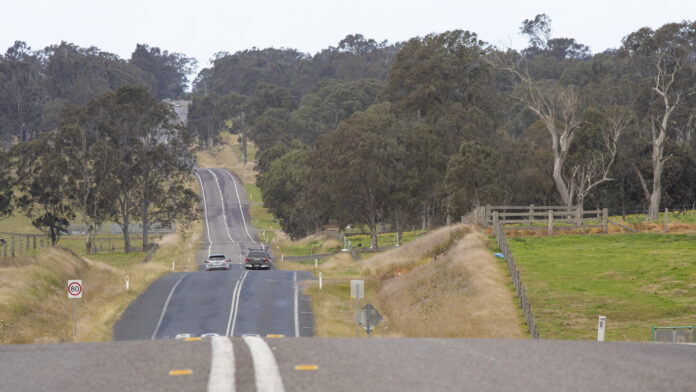Rural road fatalities made up two thirds of last year’s national road toll, with 835 people tragically losing their lives.
That is the alarming statistic driving this year’s Rural Road Safety Month campaign – a community-based awareness initiative that calls on road users to jump in the driver’s seat of regional road safety.
In the Hunter Region, figures show that more than 220 people were killed or injured in accidents on Cessnock roads in 2018/19, while 163 people were killed or injured in crashes in Lake Macquarie over the same period.
Lake Macquarie MP Greg Piper says the road crash fatality rate in the city is one-and-a-half times the state average.
“A lot of people are quick to blame the roads, but speeding, drink and drug driving and fatigue remain the biggest killers on NSW roads,” he says.
“We’ve got to take ownership of that problem before more precious lives are lost.”
Australian Road Safety Foundation (ARSF) Chief Executive Russell White says the campaign is about educating “every single road user around the country that rural roads have risks”.
“The biggest issue out there is that more than two thirds of road toll happens on regional and remote roads,” he says.
“We need to make the community know that the keys to road safety rest in our hands as road users – it’s our choices and our behaviours that contribute to those incidents occurring or not occurring.”
New research led by the foundation has shown that one in five drivers are more likely to break the rules in rural areas.

It’s an issue that Mr White believes can only be changed by improving driver behaviour and community ownership.
He adds that, when driving in these areas, there are several things working against you and, while it may not seem like it, risks still exist.
“Roads aren’t as maintained,” he says.
“There are obstacles on the side of the road and help can be a long way away if you’re in a remote area.
“Complacency, familiarity and a mindset that [you can’t get caught] means people tend to push the boundaries.
“They’re all things that add up to it being a different risk space to what you would face on a busy highway.”
Moving forward, Mr White says reducing the road toll is in the hands of drivers.
While improvements to roads and medical responses all help, the foundation is focusing on driver behaviour, performance and training.
“It comes [down] to the personal responsibility we all have,” he says.
Go to the Australian Road Safety Foundation’s website for more information.







